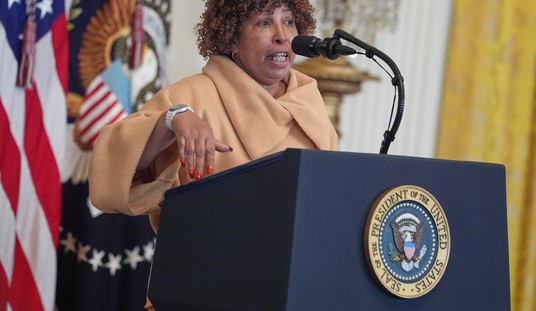
On Wednesday, the United States Supreme Court heard a case that has the potential to devastate the what’s left of the private-sector union movement.
The case tangentially involves something that, to many laypersons, often looks like a form of extortion (or bribery) but is currently legal under U.S. labor law, wherein a union uses economic, political and media pressure (also known as Corporate Campaigns) to coerce an employer into agreeing to something called a “neutrality agreement.”
As unions have failed to win enough new members through secret-ballot elections to survive, neutrality agreements have been used to put tens of thousands of employees into unions over the last few decades.
The case before the Court involves a quid pro quo between a union and an employer: The union agreeing not to strike, as well as spending $100,000 to support a local gaming initiative on behalf of the employer, a Florida casino, and the employer giving the union its employees’ information and access to property.
Though there are different parameters agreed to between unions and employers, often the culmination of a corporate campaign is a “neutrality agreement” that essentially turns an employer’s employees over to a union’s organizers–without the employer “campaigning” against the union.
Often, the neutrality agreement includes “card check,” which denies workers the right to vote for or against unionization by secret ballot.
- A recent example of a union’s corporate campaign would be the United Auto Workers’ campaign against foreign-owned auto makers. At Nissan, the UAW has enlisted the NAACP to trying to “shame” Nissan into neutrality.
In some cases, such as the case before the Supreme Court, the union obtains from the employer certain employee information (such as names and addresses) against the employees’ wishes, as well as is given access to the employer’s property.
The question before the court is whether an employer giving employee information, as well as access to property, is a “thing of value.”
Under current law, while it is legal for a union to place pressure on companies in order to obtain a “neutrality agreement,” it is illegal for an employer to give a union a “thing of value.”
As noted by the 11th Circuit (see decision below):
Congress enacted the LMRA, commonly known as the Taft-Hartley Act, to curb abuses “inimical to the integrity of the collective bargaining process.” Arroyo v. United States, 359 U.S. 419, 425, 79 S. Ct. 864, 868 (1959). With certain exceptions, § 302 makes it unlawful for
any employer . . . to pay, lend, or deliver, any money or other thing of value. . . to any labor organization, or any officer or employee thereof, which represents, seeks to represent, or would admit to membership, any of the employees of such employer . . . .
In the case before the Court, an employee who objected to his Florida casino-employer giving a union, UNITE-HERE, information and access to unionize he and his co-workers.
The Wall Street Journal has a good summary of the case before the Court:
Martin Mulhall (Unite Here v. Mulhall) is a groundskeeper at the Mardi Gras greyhound racetrack in Florida, where he has worked for 40 years. In 2004, Unite Here’s Local 355 struck a deal with the company to grease the skids for unionization.
Mardi Gras gave the union an employee list and contact information, provided access to those employees on company property, and gave the union a veto over what the company could say about unionization. The company also let the union proceed with “card check” in lieu of a secret-ballot organizing election. In return, the union agreed not to strike and spent $100,000 to support a local gaming initiative favored by the company.
Mr. Mulhall didn’t want to join a union and objected to the company entrapping him in a unionized workplace. He sued, arguing that Mardi Gras’s collusion with Unite Here is forbidden by the 1947 Labor Management Relations Act, aka Taft-Hartley. Under Section 302 of that law, employers are forbidden from giving any “thing of value” to a union that wants to organize its employees.
Not surprisingly, Craig Becker–the former SEIU and AFL-CIO lawyer who was recess-appointed to the National Labor Relations Board before returning to the AFL-CIO–has weighed in on the case.
In the Mulhall case, Becker argues that the law is being misconstrued:
Craig Becker, the general counsel of the AFL-CIO, the country’s largest federation of labor unions, said that in Mulhall one section of the labor relations statute is taken out of context. Congress intended to criminalize the exchange of money and straightforward bribery, Becker said.
“This is about everyday accommodations between employers and unions that take place all the time,” Becker said. The AFL-CIO filed a brief supporting the position of Unite Here.
While Becker argues that the “exchange of money and straightforward bribery” was Congress’ intent, his argument is flawed in that unionization results in money directly into union coffers–in the form of dues.
Whether or not the Supreme Court strikes down neutrality agreements is anyone’s guess.
However, irrespective of the decision, neutrality agreements are nothing more than unions getting employers to turn over their employees to unions–often at the expense of the employees.
Related:
- New NLRB Decision Legitimizes Unions’ Race To The Bottom
- Supreme Court to Inspect Neutrality Agreements
Mulhall v UNITE-HERE.pdf by LaborUnionReport
_________________________
“Truth isn’t mean. It’s truth.”
Andrew Breitbart (1969-2012)
Cross-posted on LaborUnionReport.com.














Join the conversation as a VIP Member